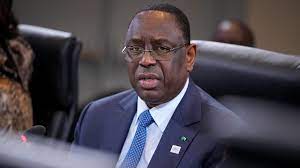APA-Dakar (Senegal) President Macky Sall’s talks with other political players to find a new date for the presidential vote in Senegal are expected to last two days, according to media sources.
In Senegal, there have been contrasting reactions after the constitutional court invalidated the postponement of the presidential election and overturned Macky Sall’s decree on the issue. Those in favour of holding the poll
before 2 April 2024, the end of the incumbent Senegalese president’s term in office, are up against those who want the dice to be rolled again, with a new list of candidates to replace the 20 who have been already accepted.
Faced with these opposing camps, President Sall has decided to stick to the line set by the constitutional court, starting consultations at the beginning of the week that should lead to setting new dates for the electoral campaign and the presidential election.
“The Head of State has decided to hold official consultations today (Monday) and tomorrow (Tuesday), following the constitutional court’s decision to annul the decree repealing the decree calling the Electoral College for 25 February 2024 and the constitutional law postponing the presidential election to 15 December 2024. The
political actors will be consulting individually with President Macky Sall to discuss with him the elements that should make up the new electoral process (time of the electoral campaign, dates of the polls (1st and 2nd rounds),” the Senegalese newspaper Le Quotidien explains in its Monday 19 February issue.
While there have been calls since last week for Macky Sall to meet only with the twenty candidates shortlisted by the constitutional court, the president will be holding these tête-à-tête meetings with “various players,” the paper says. At the end, he will “set the new dates for the electoral process: the duration of the campaign and the date of the first round of the presidential election, as well as that of the second round, should there be one.”
Last Saturday, civil society organisations supported by opposition supporters organised a “silent and peaceful march” in Dakar to express their opposition to any postponement of the presidential election or extension of the President’s term of office. Thousands of Senegalese attended the demonstration, some of them even stating their preference for “the date of 3 or 10 March 2024” for the holding of the presidential election.
Is “as soon as possible” ambiguous?
Speaking to the press on Sunday, candidate El Hadji Malick Gakou said that the first round of voting could validly be held “on 3 March 2024,” the first stage of the timetable he has proposed to enable Macky Sall to hand over to his successor on 2 April.
“If there is a second round, it will take place on the second Sunday following the ruling of the constitutional court, which could be Sunday 31 March,” stressed one of the six presidential candidates of the main opposition
coalition, Yewwi Askan Wi (Free the People), which includes the imprisoned opposition leader Ousmane Sonko and his candidate, also in prison, Bassirou Diomaye Faye.
A number of ambiguities, maintained by government and opposition figures, relate to the expression “as soon as possible” used by the constitutional court in its decision of 15 February, in which it called for the presidential election to be held without specifying a date. They feel that this formula is unclear and gives the outgoing
president the latitude to organise the election at any time he wishes.
Gathered together under the Democratic Front for an Inclusive Election (FDPEI), the candidates rejected by the council, including that of the Senegalese Democratic Party (PDS), the exiled opponent Karim Wade, say
they understand the high court’s decision as an act of “full resumption of the electoral process.” “This full resumption of the process, in clear terms, means that all decisions taken concerning the presidential election of 25 February 2024 are null and void. This means that the candidates who were robbed, the candidates who were
validated, and the candidate who was unjustly eliminated for alleged dual nationality (Karim Wade), are now all in the same boat,” says the FDPEI.
In response, fifteen of the twenty official candidates stressed that the court’s decision reaffirmed “the integrity of the electoral process underway and the inviolability of the list of candidates selected to take part in the presidential election.”
In a joint statement not signed by the ruling party candidate Amadou Ba, the opponents Idrissa Seck, Boubacar Camara, Mahammed Boun Abdallah Dionne and Rose Wardini, the 15 observed that the poll could not be “postponed beyond the duration of the presidential term,” which is April 2, 2024.
Interviewed by APA, Senegalese political scientist Moussa Diaw is not far from this position.
“By using the term ‘best timeframe,’ the constitutional court is leaving it up to the Executive to resume
consultations in order to choose a consensual date for organising an election that complies with the provisions of the constitution. Obviously, taking into account the deadline for the term in office of the outgoing president (Macky Sall), i.e. 2 April 2024,” explained Mr Diaw, a lecturer and researcher at the Universiy Gaston-Berger in Saint-Louis (north of Senegal).
ODL/ac/fss/as/APA


